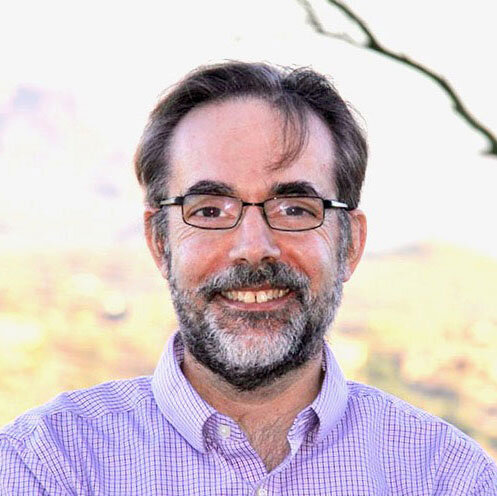
In this series, we’re sitting down with the Swette Center affiliated faculty to catch up on food systems, innovation, and what makes a good meal. See the rest of the series on our Food Systems Profiles page.
Read on for an interview with Marco Janssen, Senior Global Futures Scientist in the Julie Ann Wrigley Global Futures Laboratory; Professor in the School of Sustainability, College of Global Futures; Director for the Center for Behavior, Institutions and the Environment, College of Liberal Arts and Sciences.
How did you get interested in food systems issues?
I grew up in a rural area of the Netherlands where I was surrounded by farming. The Netherlands is very agricultural; they export a lot of food for being such a small country. Farming is also present in my family since both of my grandfathers worked in agriculture. I grew up very familiar with food production from a young age. I will always have an interest in food systems.
Share a glimpse of your current research and how it applies to food systems transformation.
Most of my research is about managing shared resources such as water, forest, fish, etc. I’m interested in researching how to avoid the tragedy of the commons. I study the behavioral aspects and that has led me to use experiments and games. I’ve been working since 2013 with an NGO in India to help them improve groundwater management. The NGO, Foundation for Ecological Security, works with more than 10,000 communities in various places in India to help them improve their practices. Groundwater extraction is a big problem in India. It’s very easy to get pumps to extract groundwater and farmers don’t have to pay for electricity. As a consequence, there is a lot of groundwater use. So I developed a game where people can choose which crops to plant and see the long-term consequences throughout the rounds of the game. This stimulates them to discuss alternative practices because they realize the problem. It’s not something they usually realize when an engineer comes in and just tells them they have to do water budgeting. That usually doesn’t help, but playing the game helps them to think differently about different practices like drip irrigation or growing different crops that use less water. This game has reached over 3,000 villages in India so far. I’m mainly involved in data analysis. I developed the original game and help the NGO to implement it and analyze the impacts. I really like this collaboration because it has a real world impact.
What’s an innovation in the food systems world that you’re excited about?
I’m excited about all the alternatives to meat because meat production is such a big polluter. These new alternatives to meat that are easily available are a really exciting innovation not only in terms of technology, but also social norms. It is changing social norms as people are realizing that meat alternatives can taste good. It’s difficult to expect everyone to become vegan, but good alternatives to reduce meat consumption are very important.
What’s your go-to weeknight meal?
My favorite food is definitely Thai. I’ve eaten real Thai food in Thailand and it was amazing. In Thailand, I ordered the mildest version, but it was still quite spicy. I loved it.